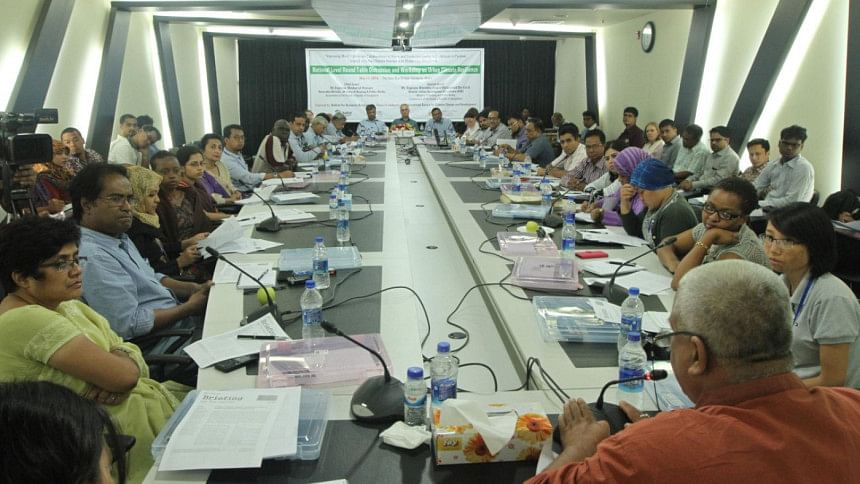Dhaka slum dwellers among most vulnerable to climate change

The government should formulate a policy for bettering water and sanitation services in slums and coordinating relevant non-government organisations' activities, speakers told a workshop yesterday.
Stakeholders' collaboration will expedite the urban climate resilience process and reduce overlapping of activities, they said, adding that the five million slum dwellers in Dhaka were the most vulnerable to and affected by climate change.
The daylong workshop revealed findings of a research on these issues conducted in Dhaka's Dhalpur and Beguntila slums where water supply was inadequate for poor service delivery of Dhaka Water and Sewerage Authority.
Titled “Urban Climate Change Resilience: Role of Multi-stakeholder Collaboration”, the workshop was jointly organised by the International Centre for Climate Change and Development (ICCCAD), and Urban for Humanity in the capital's The Daily Star Centre.
Climate change hazards like waterlogging and heat stress, coupled with poor water and sanitation services, led to waterborne diseases like diarrhoea, cholera, dysentery, skin diseases and pneumonia, said Sarder Shafiqul Alam, principal researcher, ICCCAD, while presenting the research findings.
The government did not have any mechanism to monitor 57 non-government organisations' activities in Dhaka slums while the latter were not able to provide long-term services for the policy's absence, he added.
The presentation also pointed out that Dhaka experienced nine major floods in the last 60 years.
ICCCAD Director Dr Saleemul Huq moderated the session, chaired by Habitat for Humanity National Director John A Armstrong.
Khondeker Fowze Muhammed Bin Farid, director, Urban Development Directorate, Ministry of Housing and Public Works, was present as the guest speaker while different organisations' representatives also attend.

 For all latest news, follow The Daily Star's Google News channel.
For all latest news, follow The Daily Star's Google News channel. 




Comments